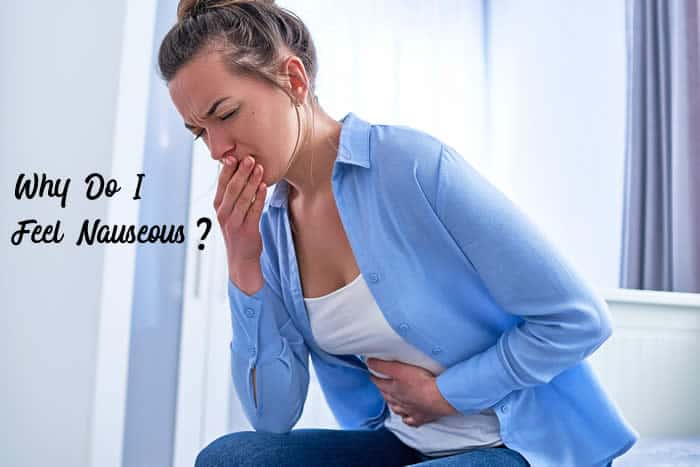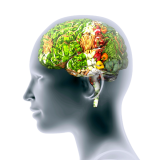

If you are experiencing nausea, you may be wondering why. This is a good question to ask because getting to the root cause of your stomach queasiness is the first step to finding a way to resolve this uncomfortable feeling. This begins with understanding some of its most common causes.
Common Causes of Nausea
Sometimes nausea is a sign that you’re coming down with the flu. Other flu symptoms to watch for can include running a fever, having body aches or chills, feeling dizzy, having low energy, and experiencing headaches. (1) Some people also have nausea with the COVID-19 virus. (2)
Can you feel nauseous and not be sick? Yes. The Mayo Clinic reports that some of the most frequent causes of nausea not due to some sort of bug or virus include: (3)
- A reaction to certain medications, such as anesthesia and medicines used in chemotherapy
- A response to pregnancy, also known as morning sickness
- A result of motion sickness
- Being a symptom of migraine headaches
- Having a medical condition such as gastroparesis (stomach muscle paralysis) or vestibular neuritis (an inner ear disorder that causes vertigo and dizziness)
- Experiencing some type of obstruction in the intestines
Some people also experience nausea when they’re majorly stressed. Referred to as stress nausea, this feeling occurs as a result of the body’s fight-or-flight response, which creates gastrointestinal distress. (4)
Why Am I Feeling Nausea for No Reason?
Research suggests that roughly 1.6% of adults experience chronic nausea for no explainable reason. (5) This can lower their quality of life, particularly if the nausea occurs more than once a week.
In this study, subjects experiencing chronic unexplained nausea underwent additional medical testing to attempt to identify the cause. In some cases, organic diseases were determined to be the underlying issue. Namely, reflux esophagitis (inflammation of the esophageal mucosa), duodenal ulcers, and hypothyroidism. Unexplained nausea was also common with irritable bowel syndrome and functional dyspepsia (a recurring upset stomach with no cause).
Some females experience nausea one to two weeks before their menstrual period. (6) If you’re close to starting, this could be the reason for your nausea – particularly if you tend to get this feeling at the same time every month.
When to Seek Medical Attention for Nauseousness
Should you be worried if you feel nauseous? Not necessarily. Many times, nausea will go away on its own, especially if it is caused by a virus or connected to your menstrual cycle.
That said, nausea can also sometimes be a symptom of a more serious issue, some of which include: (3)
- Acute liver failure
- Appendicitis
- Brain tumor
- Crohn’s disease
- Enlarged spleen
- Gallstones
- Heart attack
- Hepatitis
- Meningitis
- Pancreatic cancer
- Pancreatitis
If your nausea becomes severe or doesn’t go away, make an appointment with your healthcare provider. They may want to conduct testing to get to the root cause. This can also enable them to develop a plan to take this feeling away.
How to Stop Feeling Nauseous
Fortunately, there are a few things you can do to stop feeling so nauseous. Here are a few to try, courtesy of the Cleveland Clinic: (7)
- Stick to clear liquids
- Drinking beverages with ice in them
- Drinking slowly
- Eating bland foods
- Staying away from foods that are fried or greasy
- Avoiding sweets
- Not being physically active after you eat
The Cleveland Clinic adds that eating small meals, eating slowly, and avoiding hot or warm foods may prevent nausea. Resting after you eat can also help, especially if you keep your head elevated.
If your nausea is a result of stress, finding ways to relieve your stress is important. Options to try include following a healthy diet, getting regular exercise, and engaging in daily meditation. You can also try sucking on peppermint candies, drinking peppermint tea, or using peppermint oil. (4)

If you get nausea from motion sickness, try to sit in the front of the vehicle or near the window. Also be sure to stay hydrated, eat frequently, and keep ginger candies on hand. (8) All these strategies can help. You may also consider taking a medication for motion sickness, many of which are available over the counter.
The Bottom Line on Nausea
Nausea isn’t a comfortable feeling, but these few actions can help prevent or resolve it. If you’re concerned that your nausea is a result of something wrong, make an appointment with your physician. Let them know how you’re feeling. They can help get to the bottom of this symptom, giving you some answers and a plan of action for easing your nausea once and for all.




